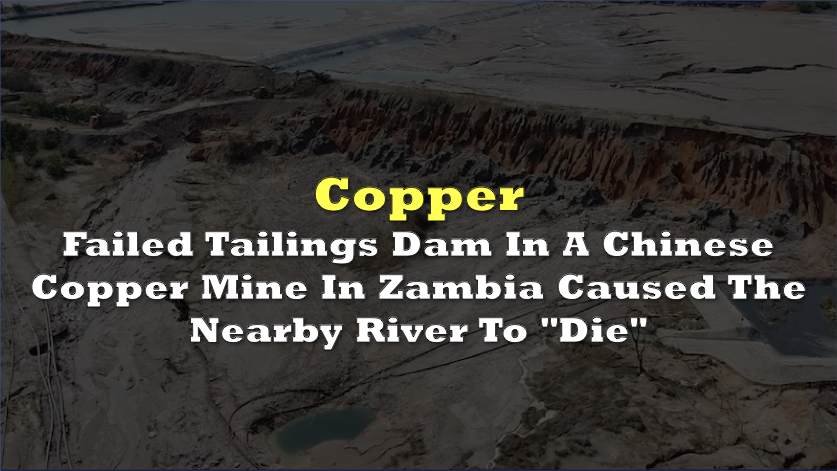Zambia, Africa’s second-largest copper producer, has taken a dramatic step by closing its borders with the Democratic Republic of Congo (DRC). This move, announced over the weekend, threatens to disrupt one of the continent’s most crucial copper trade routes and could have significant repercussions for global copper supplies.
The decision to seal the border was confirmed by Zambia’s Minister of Commerce, Trade, and Industry, Chipoka Mulenga, during a broadcast on the state-owned Zambia National Broadcasting Corporation (ZNBC) on Saturday night. The closure is a response to growing trade tensions and recent protests in the DRC.
“We have decided to take precautions that we seal the borders for now,” Mulenga said. “We may start experiencing a build-up of trucks.”
ZAMBIA CLOSES BORDER WITH CONGO, CLOSING KEY COPPER TRADE ROUTE
— The_Real_Fly (@The_Real_Fly) August 11, 2024
The protests in the DRC were sparked by the Congolese government’s decision to ban certain beverage imports from Zambia, further straining relations between the two neighboring countries. The Zambian government has not provided a specific timeline for when the borders might reopen, leaving the copper industry and international markets in a state of uncertainty.
Zambia’s copper industry is a cornerstone of its economy, contributing approximately 70% of the nation’s export earnings. The country’s mines produce a significant portion of the global copper supply, which is essential for a wide range of industries, including electronics, construction, and renewable energy.
The DRC, which borders Zambia to the north, is Africa’s largest copper producer, and most of its copper exports pass through Zambia on their way to ports in South Africa and Tanzania. The border closure could severely disrupt this trade route, leading to delays in shipments, increased transportation costs, and potential bottlenecks at alternative routes.
The border closure comes at a time when Zambia’s copper industry is already grappling with a severe power crisis. The country is experiencing its worst drought in decades, which has drastically reduced water levels at hydroelectric dams, the primary source of electricity for the nation.
Zesco Ltd., the state-owned power utility, has responded by requesting that mining companies cut their power usage by 40% of normal demand. The request, which was made earlier this month, has forced mining companies to seek alternative sources of energy to keep their operations running.
First Quantum Minerals (TSX: FM), the largest copper producer in Zambia, has taken steps to mitigate the impact of the power cuts. The company has secured emergency power supplies from neighboring countries, including Namibia and Mozambique, to offset the shortfall in domestic power generation. “That’s really our proactive way of making sure that we are set up better for the rest of the year,” said Anthony Mukutuma, First Quantum’s Country Director, in an interview last Thursday.
Despite these efforts, the cost of sourcing emergency power has increased sharply, doubling since April. According to Mukutuma, this has added an average of $0.06 per pound of copper to the company’s production costs, up from $0.03 per pound earlier in the year.
So far, the cooperation between the Zambian government and the mining industry has helped to prevent major disruptions to copper production. Sokwani Chilembo, CEO of the Zambia Chamber of Mines, emphasized that power imports from neighboring countries have been critical in maintaining stability. “We’d have to see how things roll out into the fourth quarter,” Chilembo said, noting that the current arrangements are holding, but the situation remains precarious.
The Zambian government has also prioritized the copper industry in its energy allocation. However, this has come at a cost to residential electricity users, who are enduring daily power cuts lasting at least 12 hours as the country struggles to balance limited power resources.
Information for this briefing was found via Bloomberg, Mining.com, and the sources mentioned. The author has no securities or affiliations related to this organization. Not a recommendation to buy or sell. Always do additional research and consult a professional before purchasing a security. The author holds no licenses.









